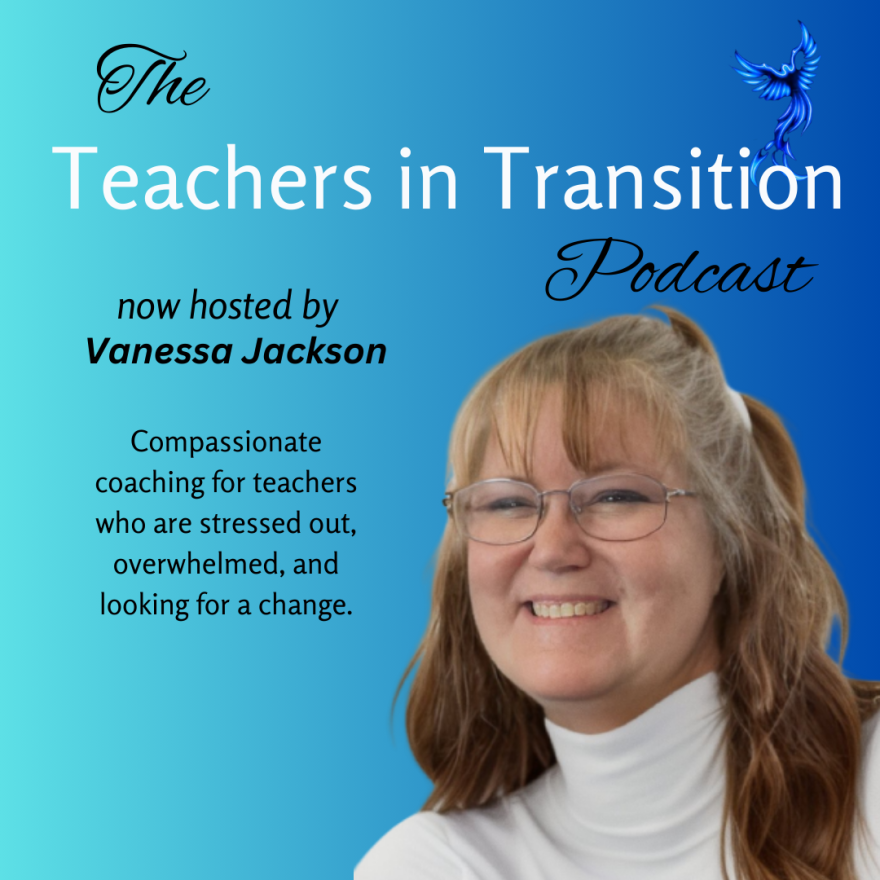|
Hi Vanessa
It’s been a hard week. So much is going on that weighs on us in different ways. And sometimes, that weight makes it harder to focus on anything else that doesn't seem to be life or death -like remembering to send a newsletter out on time.
I want to thank you for continuing to read and for allowing yourself to contemplate what’s possible—especially when the world feels heavy.
To be clear: I denounce all the violence. I stand against all forms of hate. I mourn with families who have lost loved ones. I grieve the loss of innocence for children and faculty who will never see their schools the same way again.
I wish I had all the answers. I don’t.
But I do know this:
I will continue to work—to speak, to teach, to build—for a future where teachers are safe, supported, and never expected to carry the world alone. Y'all are my why.
The Ever-Rising Bar of Expectations.
When I was in college, the legendary composer and conductor Leonard Bernstein passed away. In tribute, our music department decided we’d perform an entire recital of Bernstein’s work—with just five days’ notice.
That’s not the norm in academic music. Usually, you have several weeks to prepare.
But somehow, we pulled it off. We did really well. One of those rare performances full of raw emotion and technical proficiency. We sat in next rehearsal feeling quite proud of ourselves. And that’s when our director looked at us with a little grin and said
“Now that I know you can do that, that's what I'll expect."
And just like that, our herculean feat became the new standard
That story has stayed with me because it’s the same trap so many teachers find themselves in. You do something extraordinary—step up for a student, lead a PD session, stay late to prep lessons or call parents—and it doesn’t become a thank you. It becomes a new basic expectation.
No additional time. No extra support. Just more expectation - just taking bigger and bigger pots into smaller and smaller pots. You get "promoted" in responsibility without a title, without a raise, and without a break. And the scariest part? Everyone thinks this is normal. It's not.
And if you’ve been wondering, “Why can’t I keep up anymore?”
The answer is: You were never supposed to.
You were never meant to sustain the impossible. So what now?
Well - first, you recognize the pattern. Then, you make a choice and start with some boundaries.
You start protecting your time. You start saying no. You start getting clear on what you want next. Because surviving isn’t a life plan, and waiting for “next year to be better” is not a strategy.
Resume Detox for Teachers: What to Keep, Translate, and Delete
If you’ve ever stared at your resume wondering what you should list … this is for you.
Here’s the truth: most teacher resumes are doing way too much—and not in the right direction.
They’re often written like a diary or a CV. What you need is a strategic sales document that is convincing a company why they need you. That’s not your fault - it’s what you were trained to do. Teaching demands documentation. It demands proof. But in the corporate world? They want to know what things you have done and what difference it has made BUT only for skills that meet the requirements of the job description.
I created a simple sorting framework to detox and declutter your resume. Keep / Translate / Delete to help burned-out teachers streamline their resumes and actually start getting interviews. Think of it like Marie Kondo, but for resumes.
✅ Keep (But Only With Context)
Some of your teaching experience absolutely belongs—but it has to be framed in language your next employer understands.
-
Classroom Management → Team leadership or group facilitation
-
Differentiated Instruction → Personalized user experiences or tailored learning solutions
-
Data-Driven Instruction → Analytics-informed decision-making
See the pattern?
It’s not about changing what you did. It’s about translating it for a new environment.
And please—add results wherever possible.
Don’t just say “created a new behavior tracking system.” Say, “Implemented a behavior tracking system that reduced disruptions by 40% in 6 weeks.”
⚠️ Translate Carefully (or Let It Go)
There are some things that might be worth keeping—but only if they match the job you’re applying for.
-
IEPs / 504 Plans → Relevant in roles tied to neurodiversity, DEI, or education services. Otherwise? Not helpful.
-
Lesson Planning → Only include if you’re pivoting into training, instructional design, or curriculum development.
-
State Standards → This only works in education-adjacent roles like ed tech or policy. If not? Leave it off.
If a hiring manager outside of education won’t know what it is or why it matters, it probably doesn’t belong.
❌ Delete. Seriously. Just Delete it.
Here’s what you can safely leave off—and what might be holding you back more than helping:
You’re not trying to prove you were a good teacher. You were. That part’s done.
Now? You’re proving you’re ready for the next thing.
The Litmus Test
Does this bullet point help you move forward—or just describe where you’ve been?
If it’s not helping you move forward, let it go.
If you'd like to go a little deeper on these topics, check out the podcast in its entirety:
PODCAST:

I'd love to connect!
Email me at Vanessa@teachersintransition.com
Leave a voicemail or text at 512-640-9099
Schedule a free Discovery Session with me: https://teachersintransition.com/calendar
Follow me on Bluesky @beyondteaching.bsky.social
Find me on Threads, Instagram & TikTok @teachers.in.transition
And on X at @EduExitStrategy
Follow on Facebook: search for Teachers in Transition and look for the blue phoenix.
Or? Join the Teachers in Transition Podcast Club on Facebook
Email Follow Connect Listen
|